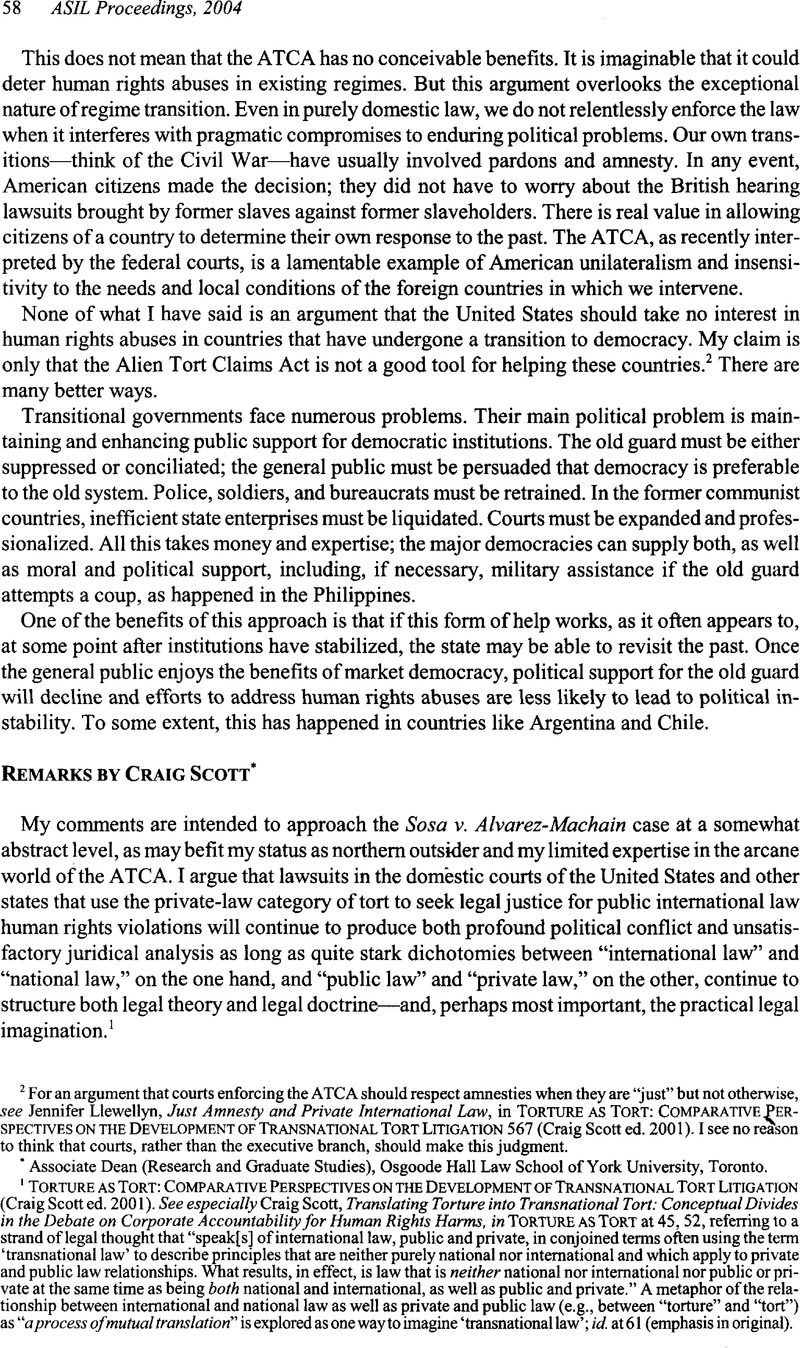No CrossRef data available.
Article contents
Remarks by Craig Scott
Published online by Cambridge University Press: 28 February 2017
Abstract

- Type
- The Alien Tort Claims Act Under Attack
- Information
- Copyright
- Copyright © American Society of International Law 2004
References
1 Torture As Tort: Comparative Perspectives on the Development of Transnational Tort Litigation (Craig Scott ed. 2001). See especially Scott, Craig, Translating Torture into Transnational Tort: Conceptual Divides in the Debate on Corporate Accountability f or Human Rights Harms, in Torture As Tort at 45, 52Google Scholar, referring to a strand of legal thought that “speakfs] of international law, public and private, in conjoined terms often using the term ‘transnational law’ to describe principles that are neither purely national nor international and which apply to private and public law relationships. What results, in effect, is law that is neither national nor international nor public or private at the same time as being both national and international, as well as public and private.” A metaphor of the relationship between international and national law as well as private and public law (e.g., between “torture” and “tort”) as “a process of mutual translation” is explored as one way to imagine ‘transnational law’ ; id. at 61 (emphasis in original).
2 Scott, Craig, Diverse Persuasion(s): From Rhetoric to Representation (and Back Again to Rhetoric) in International Human Rights Interpretation, in Human Rights: The International Legal Context (Alston, Philip ed., forthcoming)Google Scholar.
3 Brief of Professors of Federal Jurisdiction and Legal History as Amici Curiae in Support of Respondents, filed in the Supreme Court of the United States in Case No. 03-339, José Francisco Sosa v. Humberto Alvarez-Machain, et al, at 12 (Feb. 27, 2004).
4 Id., quoting 4 William Blackstone, Commentaries at *67.
5 Convention against Torture and Other Cruel, Inhuman or Degrading Treatment or Punishment, GA Res. 39/46, 39 UN GAOR Supp. (No. 51), UN Doc. A/39/51 (1984).
6 Brief of Amicus Curiae the European Commission in Support of Neither Party, filed in the Supreme Court of the United States in Case No. 03-339, José Francisco Sosa v. Humberto Alvarez-Machain, et al., at 18 (Jan. 23,2004).
7 In this respect, I find it significant that the sources of the principles the Commission suggests domestic judges draw upon to forge an appropriate jurisdictional discourse around international human rights torts include not only public international law and (comparative) private international law but also the statutory recognition by the U.S. Congress of exhaustion-of-local-remedies criteria in ATCA’s cousin, the Torture Victim Protection Act.


